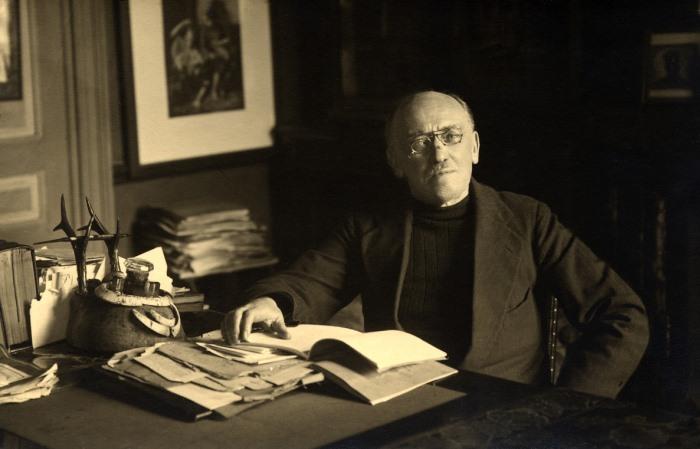During the late nineteenth century and the early twentieth century, homosexuality was thought of as a severe problem in society. As such, it was impossible to openly admit one’s homosexual nature. In many European countries, so-called ‘sodomy laws’ criminalized homosexual acts. This fact is depicted in many artistic works, such as James Ivory’s recently restored film adaptation (1987) of E.M. Forster’s Maurice (1971), starring the young Hugh Grant and James Wilby. Maurice portrays the struggles of some young Cambridge intellectuals with their homosexual feelings and the unequivocal British disdain for same-sex relations. In one passage, the young Lord Risley is arrested and sentenced to six months of hard labour after soliciting sex from a soldier.
In France, homosexuality also provoked general disapproval, as is demonstrated by the reactions to the tumultuous affair of the great French symbolist poets Arthur Rimbaud and Paul Verlaine (1844-1896). In Belgium, homosexuality was mostly kept under wraps; after the French Revolution, sodomy was left out of the criminal code. However, homosexuality was generally considered a degeneracy. This is exemplified by the cause célèbre of the lawsuit against the Belgian author Georges Eekhoud, for publishing the novel Escal-Vigor (1899). Eekhoud, winner of the prestigious National Award for French Literature (1893), touched upon the issue of homosexuality in Escal Vigor.
As demonstrated by his first literary works, the poetry collection Myrtes et Cyprès (1877) and the novel Kees Doorik: scènes du polder (1883), and by his magnum opus La Nouvelle Carthage (1888), Eekhoud’s characters are, in one way or another, social outcasts. This is also the case for Escal-Vigor, which presents the story of the passionate, yet platonic affair between the count Kehlmark and the country boy Guidon. This topic was controversial to such a degree, that the novel was considered a press offence against public decency and Eekhoud was summoned to appear in court, where a jury had to decide whether or not the author was guilty of immorality. In the end, Eekhoud was acquitted of the charges, but the fear of exposure and social ‘excommunication’ urged him to strongly deny accusations on being a homosexual himself.
Nevertheless, Eekhoud struggled with his homosexual nature all his life. Married to his former kitchen maid, he had different male lovers on the slide, among whom the journalist-writer Sander Pierron (1872-1924). His work contains several passages expressing his personal loneliness and despair because of his homosexual feelings.

Eekhoud’s library consists of 1379 publications. It teaches us a lot about the author’s extensive literary and international contacts and it offers an insight into the influences on his work. Eekhoud was called the Belgian Maxim Gorki; he had a broad international network and was close to important artistic figures, including Emile Zola (1840-1902) and Emile Verhaeren (1855-1916), and homosexual artists such as Paul Verlaine and the Dutch controversial writer Jacob Israël de Haan (1881-1924). As an art critic, Eekhoud wrote several monographs about Flemish artists; he was also connected to periodicals such as L'Étoile belge, La Jeune Belgique, Mercure de France, and Le Coq rouge. Moreover, the Heritage Library possesses Eekhoud’s manuscripts, among others, the precious autographs of Escal-Vigor and La nouvelle Carthage.
The Conscience Library holds the most comprehensive collection of Belgian Francophone literature written by authors of Flemish descent. Next to Georges Eekhoud this includes, for example, Charles de Coster, Max Elskamp, Marie Gevers, Maurice Maeterlinck, Paul Neuhuys, Jean Ray, Georges Rodenbach and Émile Verhaeren.
Keywords
- gay literature
- fin de siècle
- censorship
- French literature
Further reading
- Wannes Dupont, Jonas Roelens & Elwin Hofman, Verzwegen verlangen - Een geschiedenis van homoseksualiteit in België, Antwerpen: Vrijdag, 2017.
- Mirande Lucien, Eekhoud le rauque. Villeneuve d’Ascq : Septentrion, 1999


